What Every American Needs to Know About Iran
Patrick Clawson, Deputy Director of Research at the Washington Institute for Near East Policy, looks at Iran's development of nuclear weapons.
Audio and video options are available.
Patrick Clawson, Deputy Director of Research at the Washington Institute for Near East Policy, looks at Iran's development of nuclear weapons.
Audio and video options are available.
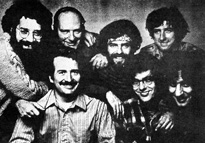
One of the Famous American Trials sites created by Douglas Linder of the University of Missouri, Kansas City, School of Law, this site explores the 1969-1970 trial of the Chicago Seven, a group of radicals accused of conspiring to incite a riot at the 1968 Democratic National Convention in Chicago. Linder provides a 1500-word account of the trial, which includes links to brief (100-word) explanations of specific terms and biographies of some of the key figures. The site provides a chronology of the lives of those involved in the trial from 1960 to 1998; images of two Yippie posters; a map of the key Chicago riot sites; and roughly 350-word biographies of 15 of the defendants, lawyers, and other figures in the trial. There are ten audio clips of defendants, prosecutors, and witnesses discussing various aspects of the riots and the trial. The site offers full-text versions of the indictment against the Chicago Seven, the trial manuscript, the contempt of court specifications against two of the defendants, and the appellate decision that overturned the contempt convictions and the convictions for intent to incite a riot. Additionally, there are 16 images of the riots and key figures and 14 quotations. A bibliography of 13 websites and 15 scholarly works leads to other sources for studying the Chicago Seven's trial and their lives as radical activists. This is an ideal site for researching 1960s activism and culture.
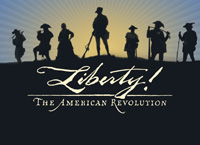
Sponsored by Norwest Corporation, this is the companion site to the 1997 PBS documentary series Liberty: The American Revolution. The site is divided into four categories. "The Chronicle of the Revolution" provides six descriptions of key events during the Revolutionary era, such as the Boston Tea Party and the Battle of Saratoga. Also offers a timeline of the Revolution and links to descriptions of related topics, a bibliography of 29 scholarly works on the Revolutionary period, and links to 45 other sites of interest. "Perspectives on Liberty" is a creative section that provides images linked to information about related places or objects. For example, a painting of a farmhouse provides information on everyday life in Revolutionary America. "Liberty, the Series" provides episode descriptions, text interviews on the making of the series, and brief, 25-word biographies of the scholars involved in creating the series. Finally, "The Road to Revolution" is an interactive trivia game with audio of specific people, speeches, and events. There are 15 images and 2 maps in this section. This site is ideal particularly for younger students who wish to learn more about America during the Revolution.
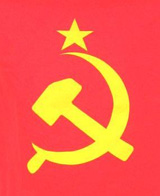
This archive contains the transcribed public papers of Albert and Vera Weisbord, American Communists active from the 1920s to the 1970s. As yet, no personal papers have been transcribed. The site contains a 500-word biographical introduction and seven volumes of Class Struggle, 1931-37, a journal that the Weisbords edited and to which Albert was the main contributor. In addition, visitors may read the preface, introduction, and a review of Albert's book, The Conquest of Power. The bulk of the material contains transcriptions of approximately 75 articles by Albert and/or Vera on topics such as "Moscow's Betrayal of the Cuban Revolution," "Feminism and Family Names," "The Struggle for Negro Emancipation," and "Unique Problems of the Spanish Revolution." Material is indexed by title within subject categories, but visitors cannot perform subject searches. This site will be useful for research on American radicalism.
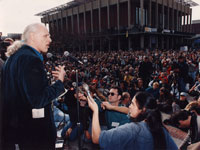
The Bancroft Library has put its entire archive of material on the Berkeley Free Speech Movement (FSM) online. A 200-word chronology introduces visitors to the major events of the movement. Printed material includes five books, 29 leaflets (200 to 3,000 words each) produced by the FSM, 55 letters to and from FSM activists, 11 local radical newsletters, 36 statements, 21 press releases, and six speeches made by students and university faculty and administration. Visitors may read complete transcripts of 10 oral histories of between 85 and 1,000 pages: eight with university administrators and faculty; two with FSM activists. A collection of legal documents includes 40 pages of trial transcripts and 400 letters from FSM activists to Judge Rupert Crittenden, who presided over their trials.
This site also provides researchers with the first public access to 96 photographs of FSM rallies and sit-ins taken by Ronald L. Enfield in 1964 and 1965. Materials from related organizations include 63 documents from nine contemporary protest movements at Berkeley. The site may be searched by subject, but is somewhat difficult to navigate because pages within the collection do not link directly to an index or the collection's home page. The site will be most useful to experienced researchers.
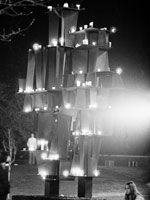
This site is designed to serve as a memorial to the four students killed at Kent State University on May 4, 1970, by National Guardsmen. Visitors will find 93 transcripts of oral history interviews taken at May 4th commemorations in 1990, 1995, and 2000. The oral histories, ranging from two and 35 minutes, are part of a larger collection. The site provides a 780-word chronology of events and a bibliography of 18 books, 90 articles, four complete issues of journals dedicated to May 4th events, and 25 websites about the tragedy. Exhibits include images of 11 memorials to the four slain students, three poems, and annual commemoration programs and photographs from 1971 to 1995. The site also includes finding aids for 71 offline collections and will be interesting for research in the 1960s, protest, and American education.
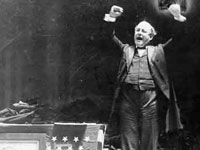
A collection of 19 audio clips of speeches recorded by seven turn-of-the-century public figures—William Jennings Bryan, Eugene V. Debs, Thomas Edison, Samuel Gompers, William McKinley, William Howard Taft, and Booker T. Washington. The clips last between one and seven minutes each; all but one were made between 1900 and 1920. Subjects of the speeches include politics, reform, socialism, isolationism, trusts, the gold standard, U.S. military force, labor issues, and race relations. The site includes transcripts of the speeches as well as 150-word biographies and three photographs of each speaker.
Through digitization, technicians have improved the sound quality of these recordings, some of which had become nearly inaudible. An opportunity for users to experience the oratorical powers of influential men from the early 20th century.
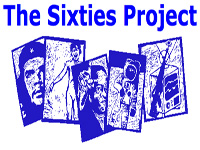
Sponsored by the Viet Nam Generation, Inc., and the Institute of Advanced Technology in the Humanities at the University of Virginia, this site is a resource for teaching and researching America in the 1960s and during the Viet Nam War. The site contains links to 17 primary documents, including materials from the Black Panther Party, the Free Speech Movement, and GI's United Against War in Viet Nam. There are more than 100 images of political buttons and posters from the era and a full-text version of Vietnam: An Antiwar Comic Book, written by civil rights activist Julian Bond after he was expelled from the Georgia legislature for protesting the Vietnam War. Additional items on the site include five keyword searchable, full-text back issues of Viet Nam Generation, a journal of recent history and Viet Nam War studies published between 1988 and 1996. The site also contains ten syllabi for courses on the 1960s and the Vietnam War. Visitors may contribute their own personal narratives about the 1960s (the quality and accuracy of these personal narratives are not controlled and should be used with caution).
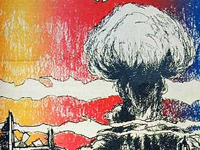
This small but interesting archive of 232 items "contains leaflets and newspapers that were distributed on the University of Washington campus during the decades of the 1960s and 1970s. They reflect the social environment and political activities of the youth movement in Seattle during that period." The collection can be browsed in 24 thematic categories that include Vietnam protests, human rights, gay rights, feminism and women's issues, racism, socialism and labor, farm workers, peace candidates, environment, religion, fanaticism, "Age of Aquarius," civil liberties, freedom of speech, anarchy, communism, pro-Vietnam War, and Palestinian protests. Basic keyword and advanced searches are available. This website is a useful resource for researching the history of campus protest in the 1960s and 1970s.
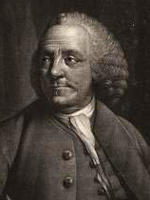
This exhibition "indicates the depth and breadth of Franklin's public, professional, and scientific accomplishments," offering documents, letters, books, broadsides, and cartoons. Eight sections exploring periods or aspects of Franklin's life are focused around items from the Library's collections with accompanying explanatory text.
Topics include Franklin's role in events prior to the Revolution, his role in the Continental Congress, his role as a diplomat in Paris and in negotiating the Treaty of Paris, his role in the early republic as President of Pennsylvania and delegate to the Constitutional Convention, his life as a scientist and inventor, and his activities as a printer and writer. There are more than 60 documents and other items available in the exhibition. There is also a Benjamin Franklin chronology from 1706 to 1790, a bibliography with 11 books and seven books for young readers, and four links to related websites. A good starting point for researching Franklin's life or the political and diplomatic history of colonial America or the early United States.